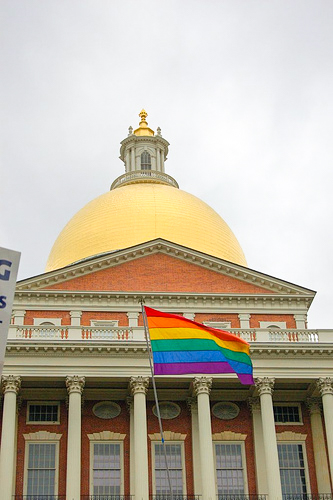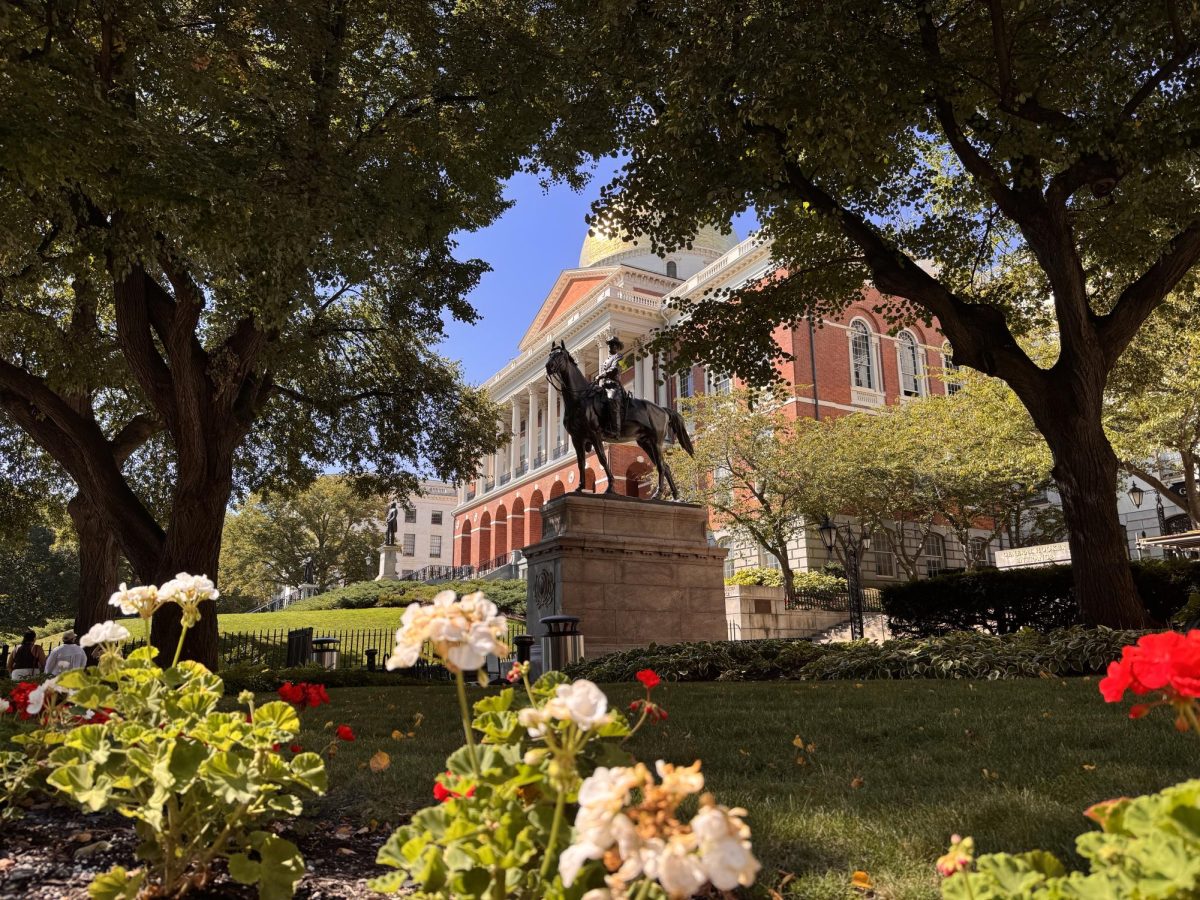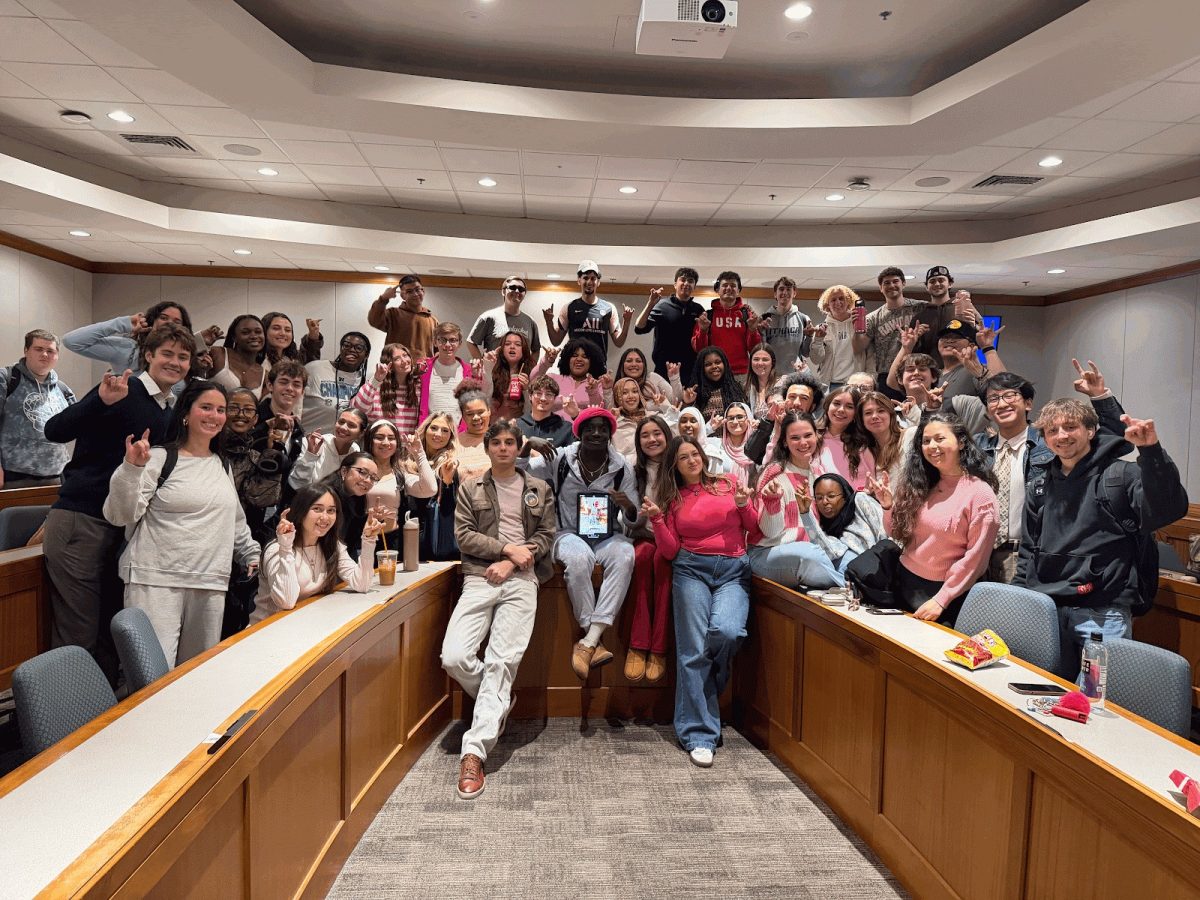
Thursday, the Massachusetts House of Representatives is voting to ban the therapy commonly known as reparative or conversion therapy, which consists of practices such as institutionalization, castration or electroconvulsive therapy.
Having already been passed through the Senate, the ban would make it illegal for a licensed healthcare provider to discriminate against anyone based on gender or sexual orientation, as well as attempts to change a person’s gender or sexual identity under 18 years old.
The ban is specific to minors, as 350,000 of the 698,000 LGBTQ+ adults that have undergone some form of conversion therapy were under the age of 18 in the United States, according to a January 2018 study by UCLA School of Law.
“Making conversion therapy completely illegal is working towards making Massachusetts a safe place for everybody, especially minors who don’t have control on if they have to go through that or not,” said Ryan, a source who has requested for his last name to remain anonymous.
According to the National Center for Lesbian Rights (NCLR), conversion therapy is a series of techniques used by mental health professionals in an attempt to change someone’s gender identity or sexual orientation. More recently, some of these practices have focused more on psychological treatments.However, NCLR attests that even the more current practices are still lacking scientific validity.
Opponents of the bill argue the government would take away a treatment that might be helpful and desired by some people struggling with their sexual orientation for faith-based or other reasons, according to The Boston Globe.
“[Using religion as an argument for conversion therapy] is damaging to many identities of the child. If the child was religious, they are being told by their parents and the system that is trying to change them that G-d doesn’t love them,” said Ryan. “And so now it’s either hating themselves or completely rejecting G-d. Which can be really damaging to a minor.”
Those using faith-based reasoning to condone conversion therapy can be argued as going against their religious faith according to Jessica Lorenzana, Diversity Peer Educator in Suffolk’s Center of Diversity and Inclusion.
“Conversion camps mostly happen in the Christian religion and there is a sense of morality and idealism of treating your neighbor as you treat yourself,” said Lorenzana. “Even though those in the Christian community don’t believe in LGBTQ+ rights, they will understand that human suffering is morally wrong.”
If passed, Massachusetts will be the 17th state to ban conversion therapy, right behind Colorado, whose Senate passed the bill on Monday and New York, who passed the ban in January.
The Bill also includes motions to include gender options other than the Female/Male binary on state-issued IDs, documents and birth certificates.
“This bill will make a statement, it’s strange to me we don’t already have this as a super liberal state, who was the first to pass same-sex marriage, I think that it’ll make a statement about that,” said Ryan.
Amongst students, there are conflicting ideas on whether or not Suffolk is showing enough support towards the bill. Some argue that Suffolk could do more to support the LGBTQ+ community while others feel they have received educational tools from Suffolk about the issue.
“I think Suffolk should be vocal about it. They have been vocal about different issues; they’ve been vocal about immigration, they have been vocal about the shootings, so why aren’t they vocal about conversion therapy and the risk it poses on our state?” said Lorenzana.
With Suffolk’s location so close to the Massachusetts State House, some students have felt close to bills surrounding similar issues.
“I’ve seen [The Bill] through SGA, through an SGA member posting about it. I feel that it’s really important that Suffolk shows support for the bill because we have to make efforts to show our community that this is a safe place and we don’t support things like that,” said Ryan. “I volunteered for the ‘Yes on 3’ campaign, which is an opportunity I got through a faculty member at Suffolk who presented that opportunity. So I know Suffolk was super supportive of ‘Yes on 3’.”
The bill is being voted on Thursday. Until then, Lorenzana holds all therapies accountable.
“No matter what, conversion therapy should never be recommended in the first place, whether therapy is public or private.”













